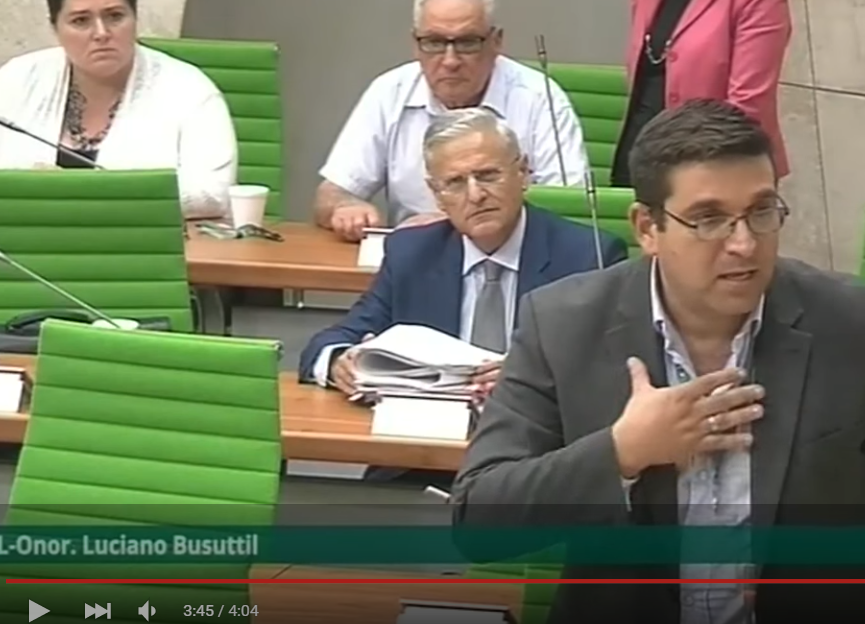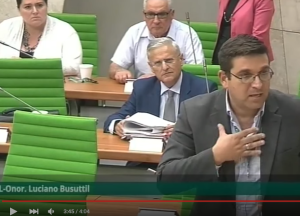Two days ago we had a Zolabyte by PN MP Franco Debono who continues his quest for the regulation of party financing. Today we bring you a voice from the other side of the house. Labour MP Leo Brincat has been involved in the issue since the Galdes Report on party financing. Here he exposes the pitfalls of the process of regulation and points out what must be solved in order to move on. Is Labour’s Leo right in lamenting that “we are already too late”? (article reproduced with the kind permission of the author).
The article by Nationalist MP Franco Debono on party financing (September 8th) made interesting reading.
The core issue and problem is that, although he seems to believe that this is an urgent matter that needs to be dealt with without any further undue delay, I was never ever convinced of his own party’s commitment to plugging the gap of this democratic deficit.
I write through experience, having had the honour to serve as the Labour Party’s nominee on the ad hoc committee chaired by the late Anthony Galdes, a former civil servant and private sector senior executive of impeccable qualities and standards, that eventually led to the so-called Galdes Report.
There are various aspects that have continued to worry me and haunt me since.
Fifteen years have passed and the Nationalist government that has been at the helm of the country for more than 13 of these years never ever made any serious effort to conclude matters on this issue or legislate on the matter. Hardly ever did it, as a party, make any formal commitment to spell out its intentions on the subject and show it is prepared to go the whole hog to ensure that agreement will be finally reached on this important issue.
On the contrary, the perception the Nationalist Party would prefer to perpetrate the status quo continues to gain ground not only in political but also in commercial and entrepreneurial circles.
There is hardly any point in my colleague Dr Debono lamenting that no significant developments have taken place since 1995 and that no concrete measures have been implemented when there was never any real agreement on the document’s findings itself… something that left the implementation process as dead as a dodo from the word go.
In the run-up to the last election, the PL had committed itself publicly to implement the recommendations of the Galdes Commission on party financing while the general feeling now seems to be that one should take that report as the basis for moving ahead, given the decade and a half that have passed since then.
If one wants proof of the PN’s lack of real commitment on party financing one should scrutinise the fine details and the differences that actually derailed the Galdes Commission.
That the three established parties agree with the principle of transparency in party financing is not enough. As the adage goes, the devil is in the detail and, if my memory serves me well, the proposals put forward by the PN during the formulation of the Galdes report had made it clear they were only after piecemeal solutions that almost defeated the whole purpose of the exercise by ensuring that the parties in question will not optimise the potential benefit of such an accord.
It is interesting to note that, at the time, the commission had been made up of the PL (through yours truly), the PN, Alternattiva Demokratika and Dolores Cristina, who was an independent member and who, to be fair, gave many positive inputs throughout the various discussions we had.
Ironically, both the AD and the only independent member (Ms Cristina) had agreed at the time with the benchmarks proposed by the PL. It was the PN that had stalled the process.
The time is already overdue for such agreement to be reached on such an issue – regardless of whether there is a functioning parliamentary select committee or not – since, by next April, this government will have been in power for three years in this legislature. With elections then fast approaching it is more likely there will be more foot dragging by the government side to reach any form of agreement.
On the other hand, I feel one should also legislate concurrently on the expenditure limits and funding of political candidates too. This, not only to ensure a proper level playing field during election campaigns but also to ensure that certain candidates who might easily find their way to the House (again or for the first time) will not have any strings attached through contributions they received.
The capping of expenditure by political candidates must also be updated and revised upwards to a more realistic level to ensure that the existing laws will not continue to be flagrantly abused of as happens regularly in every election campaign.
In an interview published in another section of the media, Nationalist MP Jeffrey Pullicino Orlando had been reported to have dropped the biggest hint to date that the government may be reconsidering its earlier opposition to the Galdes conclusions (September 26, 2007). Alas, since then, we have not seen any concrete proof of this, no matter how strongly Dr Pullicino Orlando might genuinely feel on the matter.
Now is the time for the three political parties to get real on the whole issue of political party financing.
The PL has already come forward with a 15-point plan on transparency, which many conveniently chose to either ignore, ridicule or downplay.
On the issue of party financing, people expect that, rather than having these parties disagreeing to agree, if they all believe strongly in transparency they should knock into place an agreement on party financing without further delay.
We are in my opinion already far too late.
Website: www.leobrincat.com
*****
Zolabytes is a rubrique on J’accuse – the name is a nod to the original J’accuser (Emile Zola) and a building block of the digital age (byte). Zolabytes is intended to be a collection of guest contributions in the spirit of discussion that has been promoted by J’accuse on the online Maltese political scene for 5 years.
Opinions expressed in zolabyte contributions are those of the author in question. Opinions appearing on zolabytes do not necessarily reflect the editorial line of J’accuse the blog. Accompanying images selected by J’accuse.
****




![Reblog this post [with Zemanta]](http://img.zemanta.com/reblog_e.png?x-id=3ad56a4d-4d9e-4019-8ef6-6e9fc66902bb)